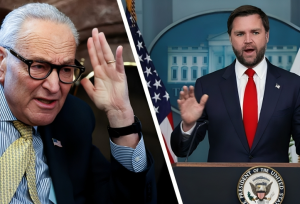The Trump administration is actively discussing broad tariff exemptions aimed at addressing persistently high food prices — a political, economic, and consumer issue that has dominated headlines for years and continues to weigh heavily on American households. According to a report in The New York Times, several individuals familiar with internal conversations say the administration is evaluating a plan that could significantly reduce or eliminate certain import tariffs on key food items.
If ultimately approved, the move would mark one of the most substantial adjustments to President Trump’s signature trade policy since his return to office — and a sharp response to recent voter dissatisfaction with rising costs.
Sources Say Beef, Citrus Among Products Being Reviewed for Exemptions
Three individuals briefed on the matter — all of whom spoke on condition of anonymity because the changes are not yet finalized — say the administration is weighing exemptions on products such as:
-
Beef
-
Citrus goods
-
Coffee
-
Bananas
-
Pineapples
-
Avocados
-
Vanilla beans
-
Other agricultural imports no longer produced in meaningful quantities within the United States
These products were originally hit by tariffs established under Trump’s reciprocal trade framework announced in April. The proposal would allow certain items to bypass those fees entirely.
Though many details remain in flux, beef imports are reportedly the most contentious element of the proposal. U.S. ranchers have fought strongly against any easing of beef imports, arguing that increased foreign supply undermines American producers and runs counter to the president’s stated aim of strengthening domestic agriculture.
Food Prices Remain a Top Voter Concern
The push for tariff exemptions comes after Democrats scored a series of victories in last week’s off-year elections. Their campaigns leaned heavily on the cost of living crisis and rising grocery bills — issues that resonate across political lines.
While President Trump has repeatedly asserted that food prices are falling, government data and independent analyses show that prices remain elevated — and in some categories, still rising. Officials inside the White House recognize the political pressure.
Treasury Secretary Scott Bessent, in an interview with Fox News, hinted that “substantial” announcements on tariff-related price relief will be coming within days. His comments aligned with internal discussions that the public has only begun to learn about.
“We’re targeting exemptions for things we simply don’t grow here,” Bessent said. “Coffee, bananas — items imported almost entirely. Removing tariffs will bring the prices down very quickly.”
Internal Push From Commerce Secretary Howard Lutnick
According to multiple sources, Commerce Secretary Howard Lutnick has been a major internal force behind the review. Lutnick has reportedly emphasized the real-world impact of food prices, arguing that the tariff adjustments could provide immediate economic relief for families without undermining core domestic industries.
Lutnick’s position reportedly follows extensive internal review of more than a thousand different product categories, as previously directed in Trump’s September executive order on trade flexibility.
A Broader Rollback Than Previously Expected
Trump’s September order already allowed for certain tariff exemptions — but only on goods not primarily produced in the United States and sourced from countries with active trade agreements with the U.S. This new proposal under evaluation would go beyond that, applying to products imported from countries that do not currently have formal agreements with the Trump administration.
That expansion could carry political and diplomatic implications, since preferential treatment for non-partner nations may be viewed as leverage-free concessions.
Critics could argue that such exemptions reward countries that have not negotiated with the U.S. Others, however, see it as a necessary move to stabilize food costs before the 2026 midterms.
The Administration’s Defense: “Nimble and Nuanced” Trade Policy
Despite numerous reports pointing to internal debate, the administration has not confirmed specific items under exemption review.
White House spokesman Kush Desai issued a general statement:
“The Trump administration is committed to pursuing a nimble, nuanced, and multifaceted strategy on trade and tariffs.”
Officials at both the U.S. Trade Representative’s office and the Commerce Department declined to comment.
The Political Pressure: Democrats Seize the Cost-of-Living Issue
Democrats won:
-
The Virginia governor’s race
-
The New Jersey governor’s race
-
Multiple statewide races in Georgia and Pennsylvania
Exit polling showed that economic anxiety played a major role in voters’ decisions. Many respondents said grocery costs remain the single-most pressing financial burden.
The day after the election, Vice President J.D. Vance echoed the need for action.
“We have to focus on the home front,” Vance posted on X. “We’re going to keep working to make life more affordable. That’s the standard we’ll be judged on in 2026 and beyond.”
Trump’s Tariff Legacy: A Balancing Act Between Policy and Politics
Tariffs have been a defining plank of Trump’s economic platform since 2016. He has long argued that tariffs strengthen American manufacturing, protect domestic jobs, and force trading partners to the negotiating table.
However, trade experts across the political spectrum note that tariffs also increase the cost of imported goods — particularly food items — because importers pass the fees directly to consumers.
In April, Trump imposed sweeping double-digit tariffs on a wide array of countries. He has since reduced or eliminated those tariffs when foreign governments agreed to deal-making terms. Just this week, the administration announced four new agreements with:
-
Argentina
-
Guatemala
-
El Salvador
-
Ecuador
Under those deals, affected countries received reduced tariff rates.
The new exemption discussions, however, represent a distinct shift: tariff relief not tied to negotiation but to domestic economic needs.
Why This Moment Matters: Midterms, Markets, and Momentum
The proposal comes at a politically delicate time. Republicans know that household budgets will be central to the 2026 midterms. Food prices are one of the few economic issues that consistently cut through political messaging and directly affect daily life.
If tariffs are lifted for key food imports, prices could begin falling within weeks — a timeline the administration considers crucial.
What Could Be Included?
Sources familiar with internal drafts say items being considered span multiple sectors:
Likely Food Categories Under Review
-
Coffee
-
Bananas
-
Pineapples
-
Vanilla beans
-
Avocados
-
Citrus products
Under Debate
-
Beef
-
Certain dairy imports
-
Agricultural products that compete directly with U.S. producers
Non-Food Categories
As part of the broader tariff review, the September executive order also instructed officials to examine exemptions in over a thousand product categories including:
-
Metals
-
Aircraft components
-
Antibiotics
-
Minerals
It remains unclear whether the new, more expansive proposal will include non-food items.
Republican Rift: Ranchers Fight Back
American ranchers and cattle associations have already raised alarms over the possibility of expanded beef imports. To them, this is a frustrating reversal after years of Trump promoting “America First” agricultural policy.
Critics argue that foreign beef imports could undercut domestic producers at a time when many are already struggling with increased feed prices, drought conditions, and supply chain pressures.
Proponents counter that consumers facing $7–$10 retail beef prices need relief, and that tariff exemptions could help reduce prices without dramatically harming domestic markets.
What Happens Next?
The plan remains under review and could shift significantly before formal announcement. President Trump has not signed off on the final list, and sources caution that some exemptions could be dialed back or removed entirely before the rollout.
The administration is expected to reveal a final decision within days or possibly weeks, depending on internal negotiations and political calculations.
For now, the only certainty is that food prices have become the most urgent domestic political issue of the season — and the White House is scrambling to respond.

Emily Johnson is a critically acclaimed essayist and novelist known for her thought-provoking works centered on feminism, women’s rights, and modern relationships. Born and raised in Portland, Oregon, Emily grew up with a deep love of books, often spending her afternoons at her local library. She went on to study literature and gender studies at UCLA, where she became deeply involved in activism and began publishing essays in campus journals. Her debut essay collection, Voices Unbound, struck a chord with readers nationwide for its fearless exploration of gender dynamics, identity, and the challenges faced by women in contemporary society. Emily later transitioned into fiction, writing novels that balance compelling storytelling with social commentary. Her protagonists are often strong, multidimensional women navigating love, ambition, and the struggles of everyday life, making her a favorite among readers who crave authentic, relatable narratives. Critics praise her ability to merge personal intimacy with universal themes. Off the page, Emily is an advocate for women in publishing, leading workshops that encourage young female writers to embrace their voices. She lives in Seattle with her partner and two rescue cats, where she continues to write, teach, and inspire a new generation of storytellers.









